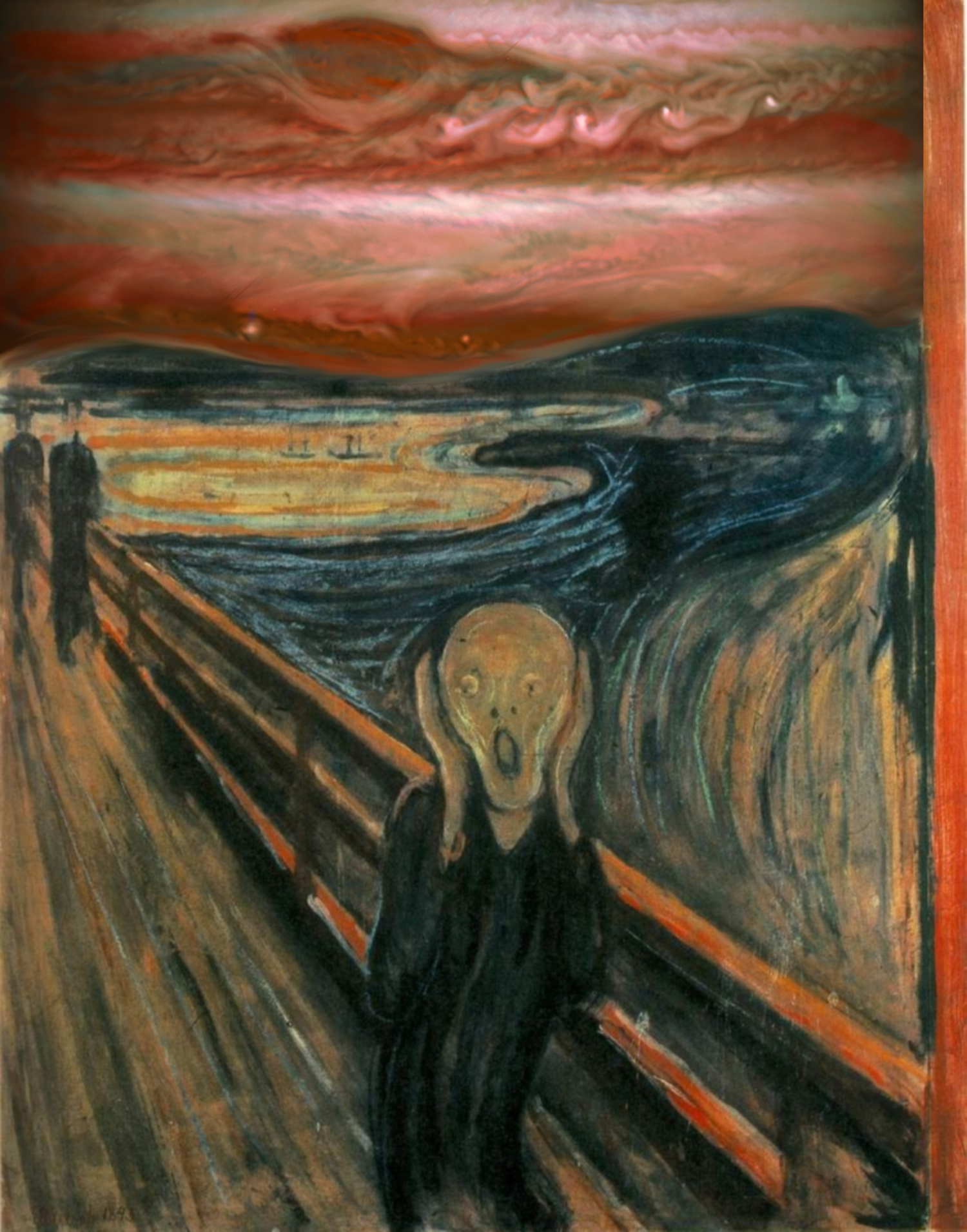RASCTO Speaker's Night: The Shock of Discovery: JWST, Exoplanet Science, and AICO [Online Only]
Image credit: Created by Aiden Weatherbee, featuring Edvard Munch’s The Scream and Jupiter’s storms, processed using raw Hubble Space Telescope data (credit: NASA, ESA, MAST Archive)
Speaker: Aiden Weatherbee, AICO/ Space Engineering, York University
Title: The Shock of Discovery: JWST, Exoplanet Science, and AICO
Abstract: The James Webb Space Telescope (JWST) has transformed nearly every field of Astronomy. By uncovering the large-scale structures of the oldest, most distant astronomical objects as well as revealing the small-scale composition of things like exoplanet atmospheres, it has drastically improved our understanding of the cosmos. Among its capabilities, JWST has provided a shockwave of discovery to the field of exoplanet science, providing unprecedented insights into planetary composition, formation, and habitability through the use of powerful techniques like transit spectroscopy.
Although only a very small fraction of planets pass between Earth and their host star (about 0.5%) , these transits offer unmatched precision in atmospheric measurements, serving as a tiny window into the next generation of astronomical observations. Beyond atmospheric characterization, the transit method has also been astronomers' most successful technique of finding exoplanets, offering ground-based observatories and amateur astronomers the opportunity to contribute meaningfully to the field. At the Allan I. Carswell Observatory (AICO), our focus is on capturing and processing these events from the ground, providing critical training opportunities for students while contributing to the long-term cataloging of exoplanet candidates.
Who can attend: Everyone
Fee: Free
Registration: Not required
Organized by: RASC, Toronto Centre and York University
Link: https://www.youtube.com/rasctoronto/live

Image credit: Created by Aiden Weatherbee, featuring Edvard Munch’s The Scream and Jupiter’s storms, processed using raw Hubble Space Telescope data (credit: NASA, ESA, MAST Archive)

